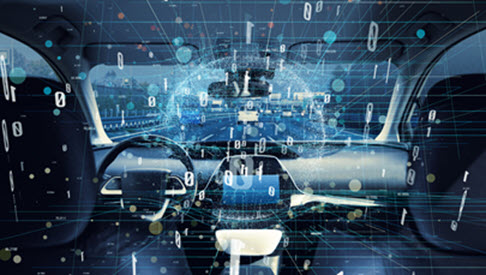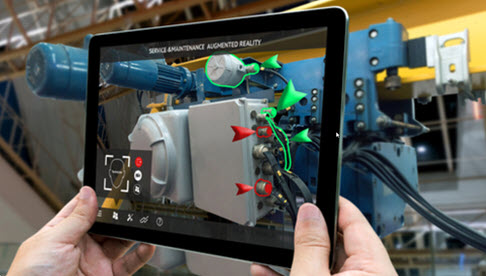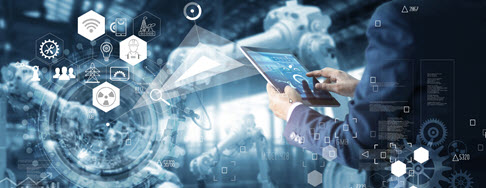Future Technologies
Some topics in the field of IT and digitalization are currently in very high demand. They continue to gain in importance in the future and therefore also influence the nature and role of companies.
Thanks to modern technologies, companies already play an important role in people’s everyday lives. An example is the growing influence of AI-based voice assistants such as Amazon Alexa, which are already integrated into many products, making them relevant in ever increasing everyday situations.
Digital progress is changing the demands of consumers, workers and entrepreneurs. In order not to be left behind, lifelong learning is now essential.
For experts, it is therefore already important to know the trends and technologies that could influence or change companies and their business models in the long term.
Autonomous Devices
Self-driving cars, drones and robots, etc. are now fully in the development and testing phase. Artificial intelligence (“AI”) is an enormous and creative field of development and a correspondingly huge market in digitalization.
The vision of intelligent swarms is also inspiring. When many objects playfully interact autonomously and perfectly, constant human intervention in processes is no longer necessary: as in industry, in road traffic and many other areas of life.
However, since human intuition and ethics cannot be replaced by robots, humans remain in demand as an agent for security and control. In order to be able to transmit the necessary data streams at exorbitant speed, the availability of 5G will become the standard.
Augmented Analytics
Augmented Analytics combine the latest developments in virtual reality, artificial intelligence and real-time analysis with real events and objects and explains what the data means, or what can be derived from it and implemented for marketers, personnel or executives.
Machine learning, for example, optimizes data preparation and management in large analyses. This helps companies make better strategic decisions. Possible areas of application include personnel policy, sales, marketing, customer service or purchasing.
Artificial Intelligence in Development
The “traditional” development of applications is changing so that development teams will no longer work without pre-developed tools based on AI algorithms. Alternatively, AI could be applied to the development process itself. The goal is the automation, and thus, the optimization of various functions.
Immersive experience
The way we humans perceive and interact with the world is changing. Through virtual reality (VR), augmented reality (AR) and mixed reality (MR) as well as on conversation platforms, we are increasingly connected to a new virtual reality. Due to the growing number of connected devices such as wearables, applications and connected cars, people are actually merging with the Internet.
Blockchain
The blockchain should move closer to the truth and create more trust and transparency in business ecosystems, so the experts say.
Fictional fees, non-transparent cost models and deliberate delays in money transactions are to be a thing of the past with transaction processing via the blockchain.
But blockchain applications are also gaining in importance: for example, in healthcare management, in the industrial design of aircraft spare parts or in other transactions, in which sensitive data and information are stored securely and verifiably for each relevant actor.
Smart Spaces
A room can be a physical or a digital environment. In an intelligent space, humans and the Internet of Things come together: processes, services, things, algorithms and people interact with each other. Scenarios or experiences created by this interplay will advance people and industry or serve to entertain us.
Robot-controlled process automation for a new customer experience
Thanks to the rapid growth of technologies such as machine learning, artificial intelligence (AI) and artificial neural networks, companies can respond even better to their customers’ needs. Technologies in these areas enable you to combine scenarios that can better understand customer needs and behaviors and make predictive decisions in real time.
Focus on cloud-based cybersecurity platforms
The serious damage caused by cyberattacks in the past will increase the importance of cloud-based security providers. These security systems, based on open programming interfaces (APIs), make it possible to integrate new technologies into platforms quickly and easily. This allows companies to keep pace with the rapidly evolving threat landscape.
End-to-end infrastructure programming
Companies will increasingly subscribe to multiple cloud platforms and increasingly use Software-as-a-Service (SaaS). With the capabilities afforded by end-to-end programmability, they can quickly adapt to changes in the corporate landscape and meet higher demands on applications and data.
Smarter and more customer-specific applications
Software solutions are able to collect information about their users and process it more and more effectively. Soon there will be applications that automatically make changes to their own functionality based on this data, thus improving the user experience. Thanks to artificial intelligence and machine learning, employee productivity will continue to increase.
Rise of data value to central importance
For some years now, data has been regarded as the most important raw material in the age of digital transformation. In the coming years, the importance of data will continue to increase. It and the new business models based on it can generate new revenue streams.
In order to increase the value of the data, further efforts are needed to collect, enrich and evaluate data. Information architectures will also change. Due to the optimization of data management, investments in this area will therefore become more important for companies in the coming years.
Metaverse
The Metaverse is a space of convergence of virtual and physical reality. It’s still a dream of the future, because it doesn’t even exist as yet in the way we might imagine. But tech giant Facebook is showing that this development should be taken very seriously. It wants to position itself as one of the big players and announced at the end of 2021 that it will be called Meta from now on.
In the future, the Metaverse has the potential to have a massive impact on our working lives and shape it significantly. Meetings could be held with human nuances of facial expressions and in one room, even though the team is spread all over the world, collaboration could feel closer than ever before – the question of whether offices will even matter anymore comes up pretty quickly. Digital interfaces and contact with people in the real world could merge and all the technologies mentioned so far could reveal completely unimagined possibilities in a metaverse.
For us at eAces, personal contact and a deep experience of people with each other is the constant for a healthy and effective working atmosphere. Only the future can show whether the Metaverse can actually represent this constant.
Marketing Intelligence
Marketing Intelligence is an integrated process that combines data sets from different systems and platforms into a central data platform. Larger companies today rely on countless channels and platforms for their marketing activities. They need to leverage technology to maintain a 360-degree view of reach, impact and success. The approach of marketing intelligence tries to provide a solution exactly here by collecting, visualizing and analyzing data often by means of artificial intelligence from different sources. This helps to better classify and understand cross-company key figures. Marketing intelligence thus serves as a central strategic decision-making tool for companies to pick up on any trends and tendencies at an early stage in the holistic company strategy.















